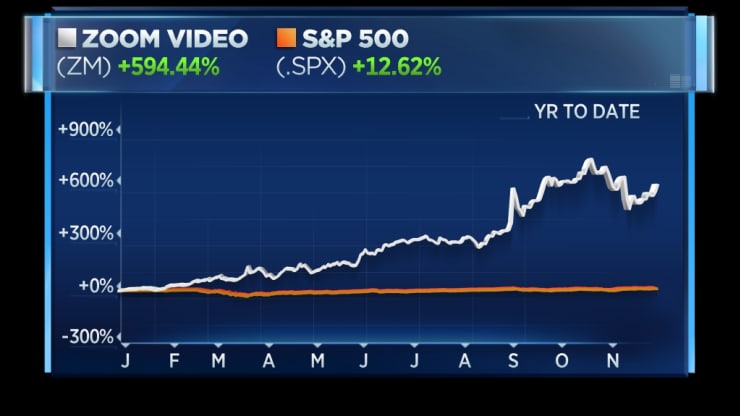
Here at Ars Technica, we would like to formally congratulate you for surviving the year that was 2020. COVID-19 may have changed everything about normal life in the last 12 months, but things are looking up for 2021. A vaccine is currently rolling out, a more science-friendly US administration will take office in January, and maybe we can even look forward to a return to normal public gatherings sometime this year. We’re going to be fine. [Editor’s note: We’re trying to be optimistic here.]
Unfortunately, you probably can’t say the same for some of the companies we write about as we head into 2021. The pandemic year has taken a toll on the tech industry, too, delaying some things we thought were happening in 2020 (like a conclusion to Oracle v. Google) and accelerating other changes we all saw coming (like record streaming numbers). So to walk you through the companies staring down a rough new year, welcome back to the annual Ars Technica Deathwatch, 2021 edition.
If you haven’t previously visited the Deathwatch during Ars Editor Emeritus Sean Gallagher’s tenure, please know: As usual, we’re being a bit dramatic with the name “Deathwatch.” This list is not predicting that the following companies will drop dead precisely within the next calendar year. Bankruptcy laws, acquisitions, and other accounting shenanigans make exact corporate death dates either very unpredictable or agonizingly slow, but we can at least make some educated guesses about the companies, products, and services that are facing down a terrible 2021.
We all helped to make online streaming services a big winner going into 2021, but since this is the Deathwatch, we’re here to talk about the losers. That means our assembled panel of experts will start by lighting a dumpster fire in honor of “the entire movie theater industry,” which is certainly doomed. (Everyone watched Wonder Woman 1984 already, right?) Take it away, Ars Policy Guru, Kate Cox!
-Ron Amadeo
All movie theater companies

This one pains me to write, because I love going to movies. I love art houses, I love second-run theaters, I love big stupid splashy IMAX screens, I love all of it. (The best part about getting my film studies master’s was that I had free or heavily discounted passes to half the movie theaters in Boston for the program’s full two years’ duration. I went to see something at least twice a week.)
And so I am deeply saddened to have to write that cinema distribution is completely screwed, but here we are.
US box office receipts came in around $11.4 billion in 2019, but movie theater attendance—the butts-in-seats metric—has been dropping for more than a decade. Theater admissions peaked in 2002 at 1.6 billion before entering a period of precipitous decline, crashing to 1.24 billion in 2017—the lowest since 1992. Attendance crawled back up slightly in 2018, to about 1.3 billion, but dropped again in 2019, back to 1.24 billion.
That was before the pandemic, which closed movie theaters altogether for months on end. Although many locations are now open at roughly half capacity, AMC, the largest US cinema chain, reported 10 percent attendance in its third-quarter results. (Read that again—not a 10 percent drop in attendance; 10 percent of possible butts in seats.)
AMC’s revenue has declined by more than 90 percent in 2020, and it shows no signs of bouncing back anytime soon. The company only remains afloat at all thanks to a debt restructuring in July. At the time AMC reported its third-quarter results, it also unveiled a plan to raise some cash by selling more shares, but the company warned it was quite possibly looking at a Chapter 11 bankruptcy filing. It hasn’t gone bankrupt yet, but by mid-December financial analysts had hit the “maybe bankruptcy is great, actually” stage of analysis. Such a fate seems to be more, rather than less, likely with each passing day.
The second-largest US theater chain, Regal, is equally hosed. Its parent company, Cineworld, also restructured its debt in November in a bid to avoid bankruptcy—but things are not going well. At least one Regal location is being sued over $1.3 million in unpaid rent dating back to April.
Making matters even worse, the content pipeline for theoretically relaunching the exhibition business in 2021 is also completely toast. Warner Brothers is planning to release all its 2021 films on HBO Max, for home viewing, simultaneously with the theatrical release. Disney (which now also owns Fox) is likewise pushing back several films or releasing them on Disney+ instead of in theaters. And film and TV production worldwide slowed or stopped in 2020 due to the pandemic, making it harder to kick content out the door in 2021 and ’22.
All told, theaters are going to need a major restructuring and cash infusion to get through 2021… and thanks to a Justice Department ruling from earlier this year, the rule that prevented a studio from buying up a major theater chain is gone. On top of everything else, that opens up the possibility that your local cinema could go whole hog and become a true Disneyplex before you know it.
-Kate Cox
Believe it or not, Zoom
OK, Zoom isn’t actually going to die in 2021, or for quite a long time after. But as a business, it’s probably going to face some challenges.
Everyone started using Zoom in 2020, as the pandemic robbed us of our ability to have meetings and events in person. The platform might not have been quite ready for prime time yet when the pandemic kicked into high gear, but Zoom corrected course fairly quickly with some privacy and functionality issues. It has become the go-to for basically everything.
Work became Zoom. School became Zoom. Happy hour became Zoom. Zoom was so successful this year that the company name became straight-up genericized almost immediately. My older kid attends “Zoom school,” even though our district actually uses Microsoft Teams for remote learning. The other Girl Scout troop leaders and I have “Zoom meetings,” even when we’re using Amazon Chime.
That means Zoom shareholders had a good year: the company’s stock value has quadrupled for each of the past two quarters. It has had absolutely stratospheric, unbeatable growth—growth that cannot, and will not, continue into the next year.

You’ve probably heard that there’s a COVID-19 vaccine out, now, with another one on the near horizon. As terrible as this pandemic has been (and it’s been very, very bad) and continues to be, we can at least see the faint glimmer of something like “normal life” on the far horizon. Remote work may be more widespread going forward, but plenty of folks will be back in the office 12 months from now. Birthday parties, happy hours, weddings, funerals, and holiday celebrations will absolutely be going back offline as soon as it’s safe to do so.
The market, in its current state, is optimized for quarterly growth. Zoom’s not going to have that next year. Already, its stock value drops when there’s good news about vaccines. But its platform, now popular and widespread, will still be a valuable asset. That combination makes it a perfect target for acquisition.
Enterprise firms have tried before: Microsoft reportedly tried repeatedly to acquire Zoom ahead of its 2019 IPO, but Redmond was rebuffed. Microsoft has since developed its own Teams more in-house, and it seems less likely to make a play for Zoom now. Google and Amazon, too, both have in-house video chat platforms up and running that compete with Zoom, and those companies may not want the extra antitrust scrutiny.
If I were a betting person, I’d put a few bucks on Salesforce making the play next year, if it has the cash on hand to do so. Zoom would fit in nicely in a new cloud-based enterprise suite, tucked in on the shelf right next to Slack.
-Kate Cox
https://arstechnica.com/?p=1728271

